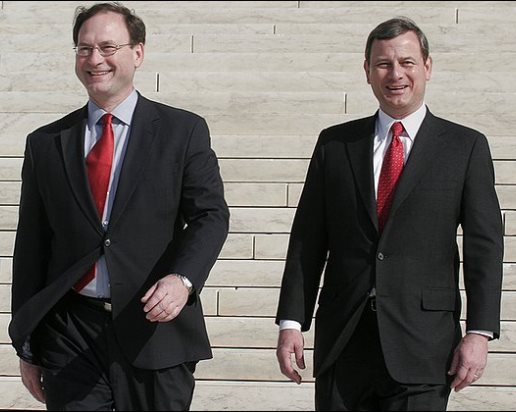Democratic legitimacy is not a presumptive right

Supreme Court justices are now subtweeting each other with increasing directness:
Across the court’s history, “The very worst moments have been times when judges have even essentially reflected one party’s or one ideology’s set of views in their legal decisions,” Justice Kagan said last week at Salve Regina University in Newport, R.I. “The thing that builds up reservoirs of public confidence is the court acting like a court and not acting like an extension of the political process.”
n July, the Barack Obama appointee, part of the court’s three-member liberal minority alongside Justices Sonia Sotomayor and Ketanji Brown Jackson, told a judicial conference in Big Sky, Mont.: “If, over time, the court loses all connection with the public and with public sentiment, that is a dangerous thing for democracy.”
Chief Justice Roberts earlier this month took issue with Justice Kagan’s critique.
“Simply because people disagree with an opinion is not a basis for questioning the legitimacy of the court,” he told a judicial conference in Colorado Springs, Colo. The high court’s role, grounded in the Constitution, ”doesn’t change simply because people disagree with this opinion or that opinion or disagree with the particular mode of jurisprudence,” he said.
In a comment Tuesday to The Wall Street Journal, Justice Alito said: “It goes without saying that everyone is free to express disagreement with our decisions and to criticize our reasoning as they see fit. But saying or implying that the court is becoming an illegitimate institution or questioning our integrity crosses an important line.”
The late, irreplaceable Robert Cover once observed that he could not conceive of any reason to care what Warren Burger thought about the law, except that he held literal life and death power over people. This is the right context in which to view Alito’s whining. If we wants to be part of a debating society where everybody can just agree to disagree in the end, he can go to academia. He’s in a position of immense power, and he’s using it to help undermine American democracy while also writing extremely unpersuasive opinions taking away rights that people have cherished for decades. As of now, he and his Republican colleagues have the raw power to do it, but over the long term unless the shape of public opinion changes substantially this is going to produce a constitutional crisis, whether he wants to hear it or not.
